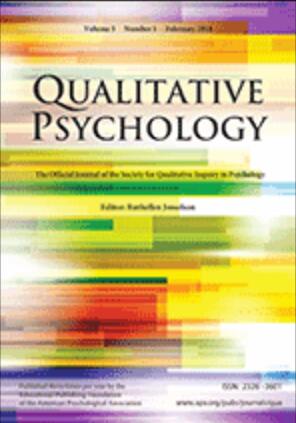The Genesis of Allport’s 1942 Use of Personal Documents in Psychological Science
IF 14.3
Q2 Psychology
引用次数: 1
Abstract
Published by the interdisciplinary Social Science Research Council (SSRC), Allport’s 1942 monograph on The Use of Personal Documents in Psychological Science (Allport, 1942) arose from the intersection of 2 sets of concerns: an extended effort by the SSRC during the 1920s and 1930s to chart the boundaries of valid research methodologies in the social sciences, and Allport’s insistence that psychology must account scientifically for individual persons in course of their actual lives. This historical review details a crisis that emerged in the late 1930s within SSRC-sponsored research concerning whether investigators could even use nonquantitative sources such as personal documents as scientific data. Allport’s own early scholarly agenda embraced German-influenced case study methods and the emerging field of personality psychology. This report outlines how, as Allport’s influence grew in the 1930s, he became a central, insistent, but relatively lonely voice rejecting psychological research methods that were exclusively experimental and quantitative. In this context, the Committee on Appraisal of Research of the SSRC accepted Allport’s self-nomination in early 1941 to assess how such data had been and could be used in psychology to achieve reliable and valid scientific results. This review traces how he went about the assignment and the uncertain evaluation he gave of his own work as it reached publication.奥尔波特1942年在心理科学中使用个人文件的起源
由跨学科的社会科学研究委员会(SSRC)出版的奥尔波特1942年的专著《个人文件在心理科学中的使用》(Allport, 1942)产生于两组关注的交集:1920年代和1930年代,社会科学研究委员会为绘制社会科学中有效研究方法的边界所做的扩展努力,以及奥尔波特坚持认为心理学必须科学地解释个人的实际生活过程。这篇历史回顾详细描述了20世纪30年代末在ssrc赞助的研究中出现的危机,即调查人员是否可以使用非定量来源,如个人文件作为科学数据。奥尔波特自己的早期学术议程包括受德国影响的案例研究方法和新兴的人格心理学领域。本报告概述了随着奥尔波特在20世纪30年代影响力的增长,他是如何成为一个核心的、坚持的、但相对孤独的声音,反对完全是实验性和定量的心理学研究方法。在这种背景下,社会科学研究委员会的研究评估委员会在1941年初接受了Allport的自我提名,以评估这些数据如何在心理学中被使用,以获得可靠和有效的科学结果。这篇评论追溯了他是如何完成这项任务的,以及他在自己的作品出版时给出的不确定的评价。
本文章由计算机程序翻译,如有差异,请以英文原文为准。
求助全文
约1分钟内获得全文
求助全文
来源期刊

Qualitative Psychology
Psychology-Psychology (all)
CiteScore
7.80
自引率
0.00%
发文量
15
期刊介绍:
The mission of Qualitative Psychology journal is to foster innovative methods, theories, and empirical research in qualitative inquiry within psychology. The journal aims to highlight the unique contributions of qualitative research in advancing psychological knowledge. Published studies not only explore substantive topics but also address issues related to epistemology, the philosophy of science, and methodological criteria that impact the formulation, execution, and interpretation of qualitative research.
Qualitative Psychology promotes a diverse range of methodological approaches, including narrative, discourse analysis, life history, phenomenology, ethnography, action research, and case study. Additionally, the journal puts emphasis on discussing the teaching and training of qualitative research methods to develop competent qualitative researchers.
 求助内容:
求助内容: 应助结果提醒方式:
应助结果提醒方式:


